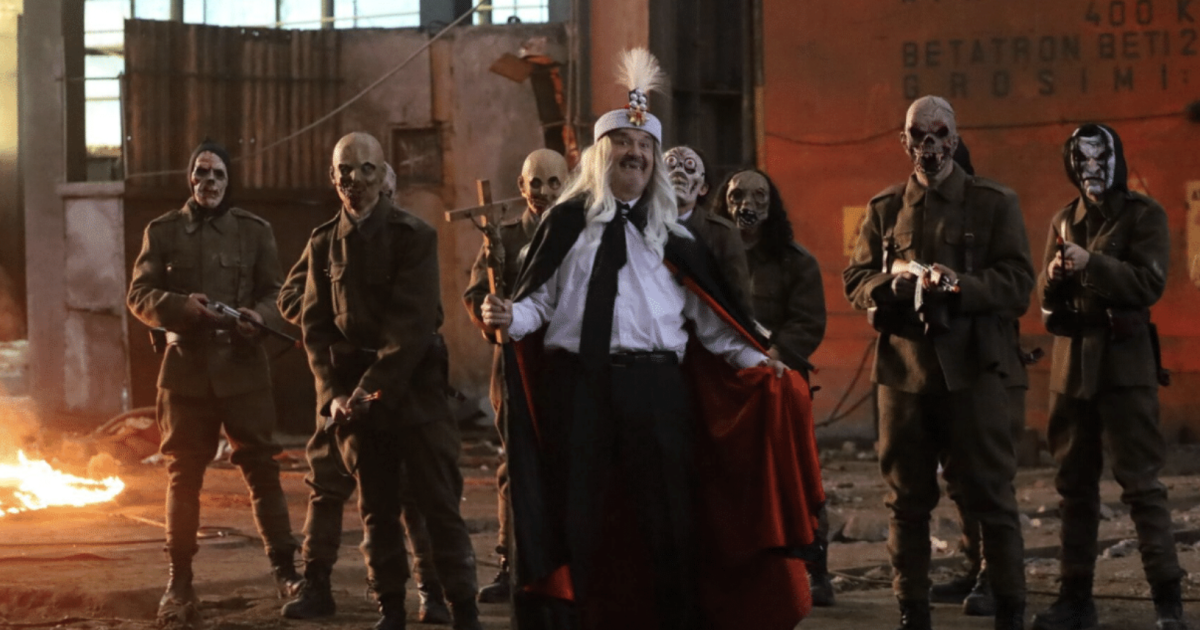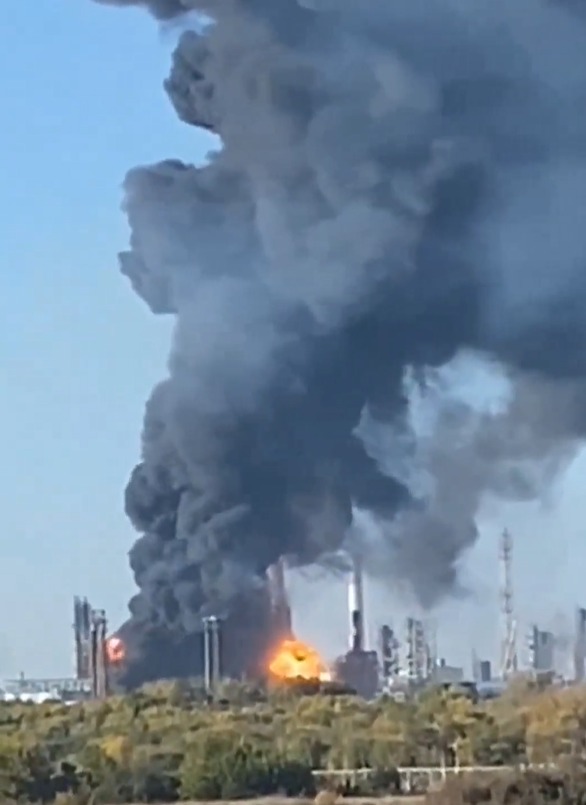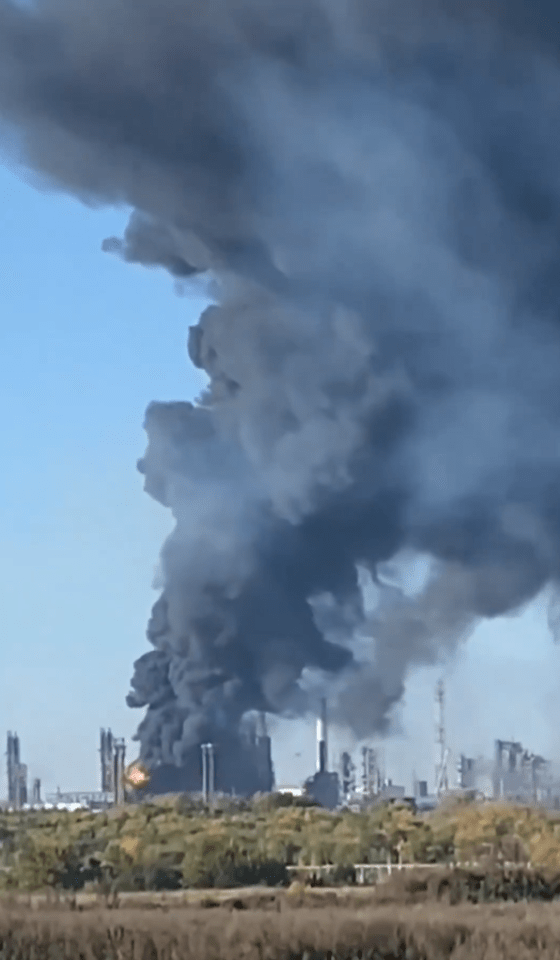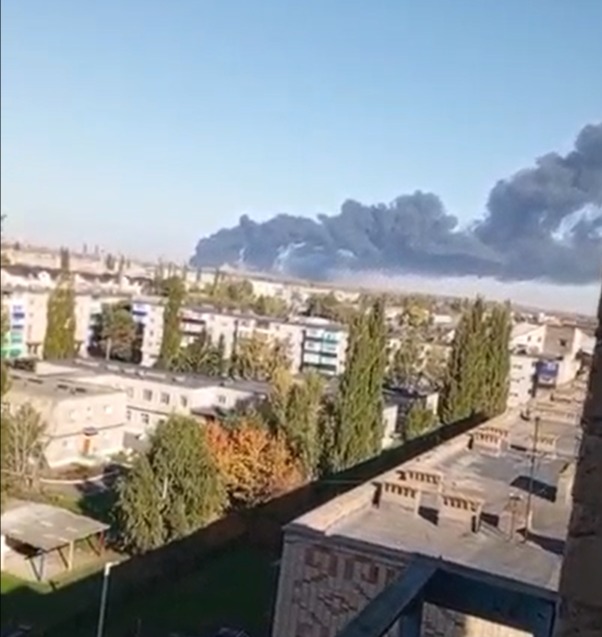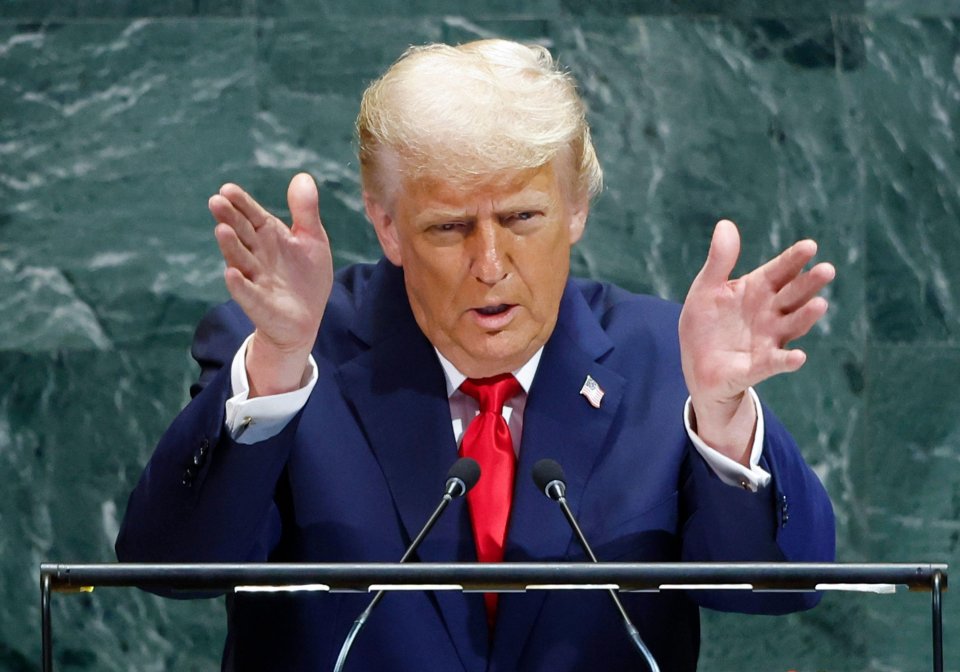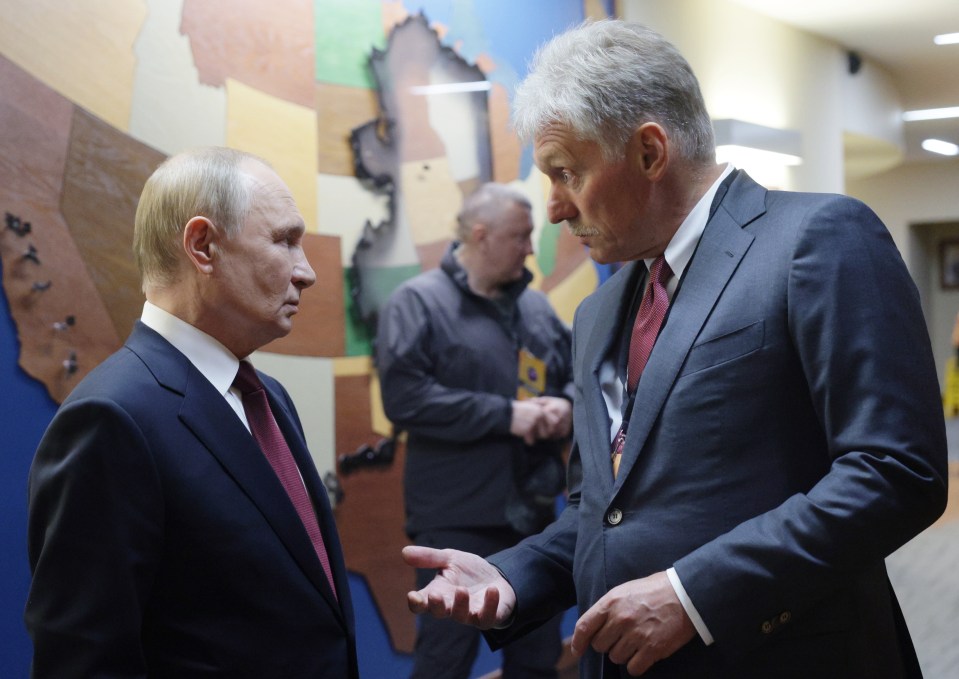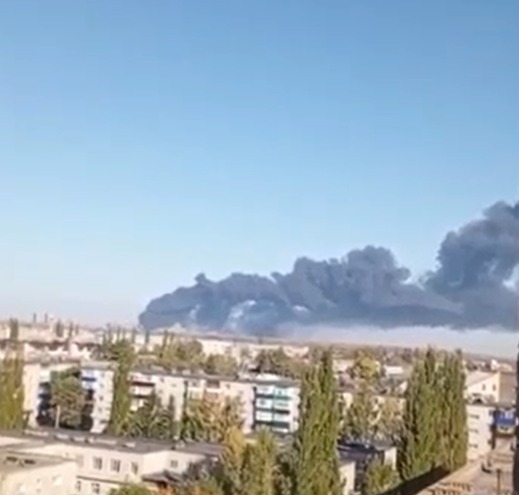‘Dracula’ review: Radu Jude returns with a three-hour, skit-laden satire.
As attention spans keep getting whittled down, intellectually impish Romanian satirist Radu Jude continues to go longer and longer, his latest act of cinematic disobedience the nearly three-hour mythbuster “Dracula.”
But you will not be getting a worshipful retelling of author Bram Stoker’s horror classic. For that, call Francis Ford Coppola. Rather, Jude has Frankensteined together a grab bag of notions about the vampire saga that is his country’s most well-known cultural export — originating with real-life medieval slaughterer Vlad the Impaler but most famously immortalized by a 19th century Irish author. Jude turns it into a vaudeville that, even at its most entertaining, is best described by a common bat-related term that’s more scatological.
For the last decade, festival favorite Jude has turned contemporary Romania’s fault lines into his own jangly, caustically funny microcosm of the world’s glaring sociopolitical hypocrisies, from the warping of the past (“I Do Not Care if We Go Down in History as Barbarians”) to sexual attitudes (“Bad Luck Banging or Loony Porn”) to late-stage capitalism (“Do Not Expect Much From the End of the World”). Jude is especially trenchant about how these realities are sold to us, and what’s inherently funny and tragic about that.
Halfway between an endurance test and a mad romp, “Dracula” is still proof he’s cinema’s brainiest, raunchiest crank: Eastern European’s own X-rated Monty Python. “Dracula” was birthed initially as a jokey response to his anti-commercial tendencies — as if Jude could ever make a conventional horror movie. But it still managed to percolate (fester?) until he’d found a unifying idea across a dozen or so vignettes of prurient humor and social commentary: the twinned legacy of a bloodthirsty despot who still stirs national pride, and an invented, Hollywoodized legend. All of it is engineered around the brutality of capitalism, which bites, slurps, then discards. It’s economics and entertainment.
As for that sucking sound in Jude’s antic organizing concept, it’s artificial intelligence: His proxy narrator is a creatively blocked filmmaker (Adonis Tanţa, in one of many roles) turning to an AI chatbot to generate ideas for his vampire film. The film’s cheeky opening is a succession of AI-generated Vlads/Draculas of all genders, colors and ages. From there, the intermittent interludes of hilariously nonsensical AI slop visuals — whether inoffensively ugly, as when inserted into a doomed peasant love story, or pornographic, when the prompt is sexing up Coppola’s 1992 version — are a consistently funny middle finger directed at a grotesquely vampiric, art-leeching technology.
The various “generated” stories and sketches, meanwhile, break up a narrative about a sleazy Dracula dinner theater in Transylvania that, when its underpaid, slave-labor leads decide to bolt mid-performance, gives dissatisfied customers a (ahem) stake in the outcome. The punchy bits work best, as when a reincarnated Vlad interrupts a modern-day tour of his home to clap back at rumors (“I didn’t kill rats!”) or a very Jude-like scenario in which Dracula is a ruthless video game company head exploiting his workers. Less effective is an overlong adaptation of the first Romanian vampire novel, its phone-shot cheapness and amateur theatrics eventually grating, and a Chaucer-adjacent fable about a cursed farmer’s harvest of phalluses that is more obnoxious than clever.
With Jude, of course, vulgarity is often the point, and maybe, as two hours becomes three, the excessiveness is part of the point too. When will we all be worn down by stupid consumerism? It doesn’t make the devilish, insane and extreme “Dracula” any easier to take as a skewering of sensibilities and conventions. As often as you may be tickled by its fanged silliness, you’ll also be drained.
‘Dracula’
In Romanian and English, with subtitles
Not rated
Running time: 2 hours, 50 minutes
Playing: Opens Wednesday, Oct. 29 at Alamo Drafthouse DTLA and Laemmle Glendale
